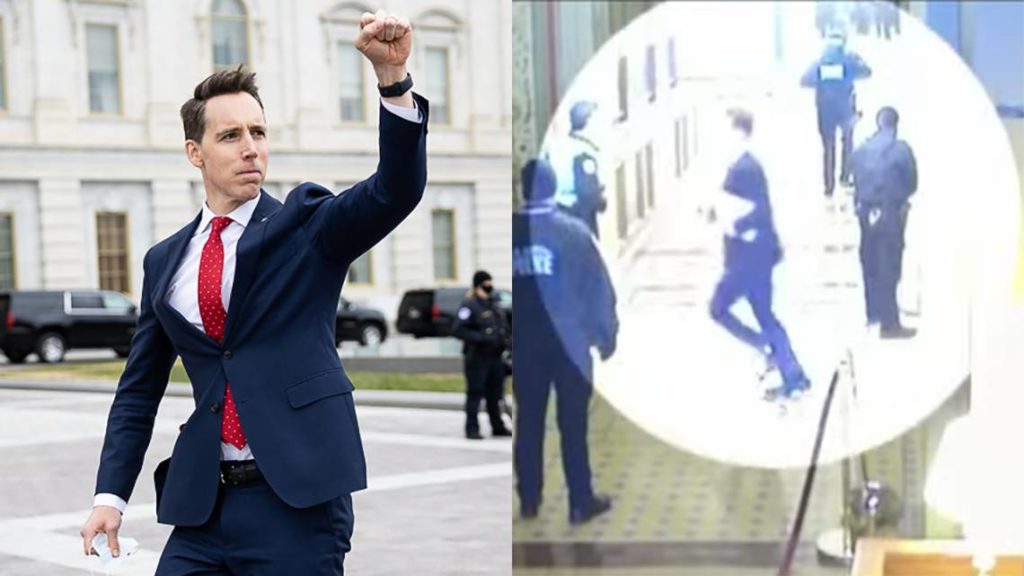1/6 was ultimately a major triumph for Trump and his political allies

This is the one 1/6 essay to read if you’re reading only one:
Today is January 6th and I feel a certain tedium and impatience about marking the anniversary of the Capitol Hill attack four years later. There seems to be a growing consensus that it, along with all of Trump’s other menaces to constitutional rule, is not worth taking seriously. The line on January 6th is that even if it was a coup or insurrection attempt, it was a farce and a failure. But this is wrong. In retrospect, it was a great political success for Trump. Not only because he got away with it, but because of how he could fracture and polarize the response. Attention paid to it is now considered sour grapes: part of a discredited political strategy and a remnant of liberal sentimentalism that is fast going out of style. He came back from it and rallied even those who initially condemned it or were frightened by it to his side. And he made the defense of the constitutional order a partisan issue.
We are accustomed to repeating now that Trump’s coalition is fragile or that there are intrinsic weaknesses in his governing style. True so far as it goes, but how fragile is a coalition that reformed and expanded after he attempted to overthrow the U.S. government? And how weak is someone who managed to suffuse the atmosphere with a sense of total credulity about himself and total cynicism about his opponents? This is an attitude now shared even among those who do not consider themselves his supporters. There is now a process of retrospective legitimation, as if the vote somehow wipes the slate clean, and makes lies the truth. There is a kind of spiritual Gleichsaltung going on: Trump is now the man and to continue one’s criticism forcefully makes you a sad deadender. Resistance liberalism is turning into Vichy liberalism and the NeverTrumpers suddenly discover they were AlwaysTrumpers. Some of that can be blamed on the failure of the media or the opposition party, but some credit has to be given to Trump himself. The great insult comic has landed his jibes: he has embarrassed the opposition, he has humiliated them. They are forced to laugh along now or look like spoilsports. Looking back in the 1960s, the Italian socialist Pietro Nenni remarked, “Everyone in Italy agreed in not taking Fascism seriously.” Not being taken seriously is probably the thing that helps Trump the most, on the one hand, it drives him, it torments him and everything he does can be read as a demand to be taken seriously, but it is also his greatest political gift and strength, it allows him to glide.
I’d like to emphasize the last two lines of the first graf:
He came back from it and rallied even those who initially condemned it or were frightened by it to his side. And he made the defense of the constitutional order a partisan issue.
Of those that remain in Republican coalition, those who understood that 1/6 was bad at the time are no less likely to support Trump than the Hawleys and Freedom Caucusers who supported it contemporaneously. (Liz Cheney being ejected from the party although she remained an orthodox Republican on every question but whether autogolpes are legitimate if Republicans try them was the dispositive evidence that tacit or explicit support for 1/6 was now Republican orthodoxy.). And the fact that appealing to democratic values was apparently ineffective as a campaign tactic underscores the extent to which a basic defense of multiparty democracy and peaceful transfers of power have become partisan-coded.
And as Erik said earlier today, the narrow failure of 1/6 to achieve its short-term objectives is a major contributor to the complacency that allowed Trump to be the second Republican candidate since 1988 to win the popular vote. The threat he poses to the democratic order has not dissipated; quite the contrary. He might have lost the first battle on 1/6 but he’s won the war over what it means.


